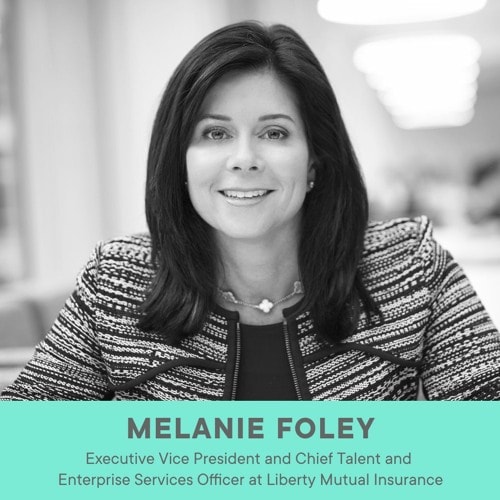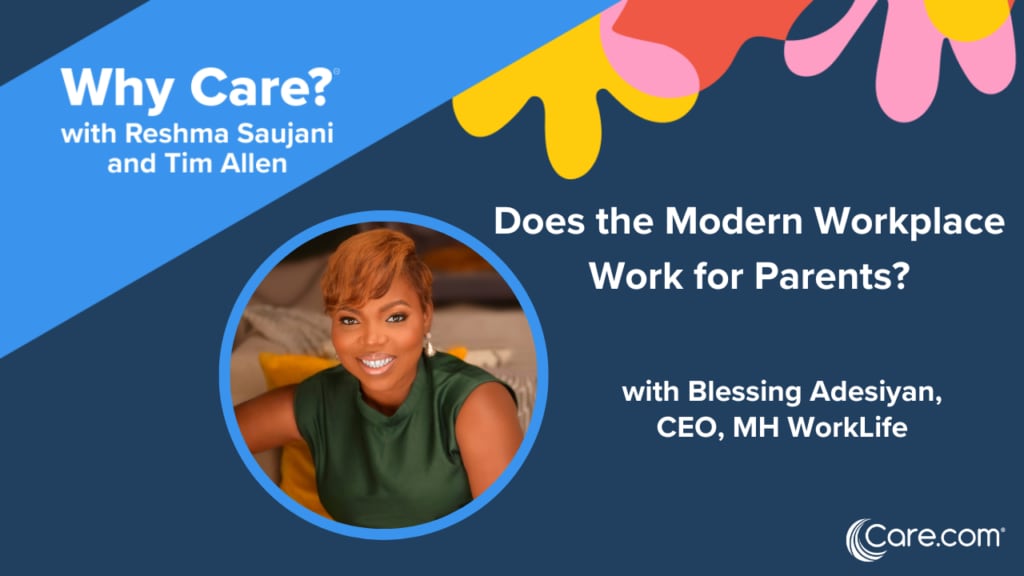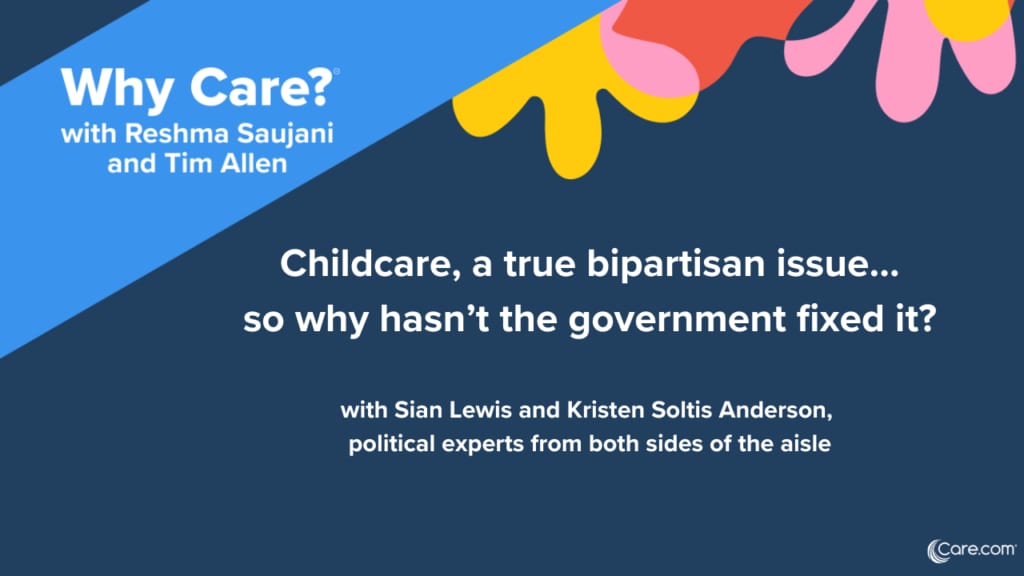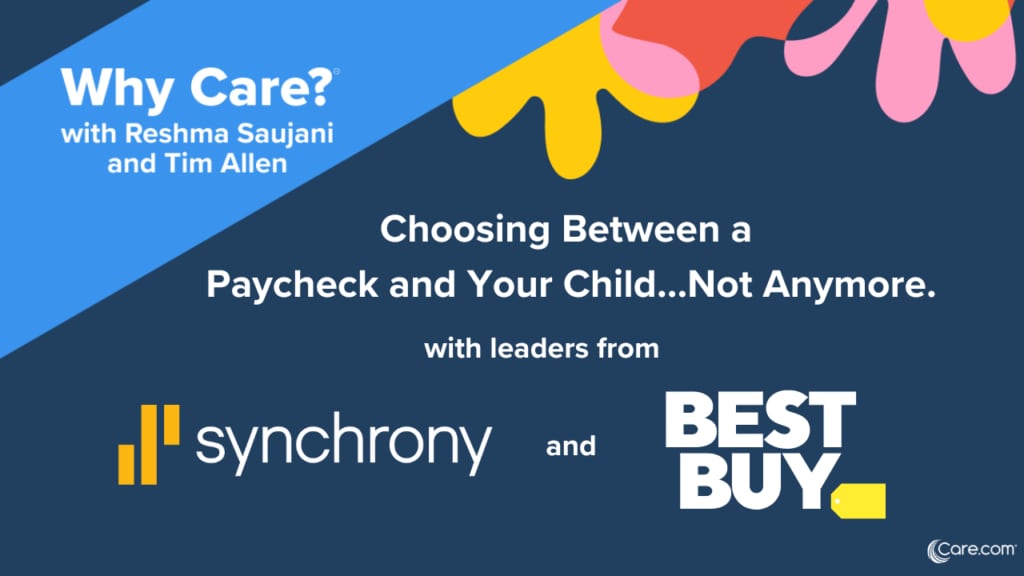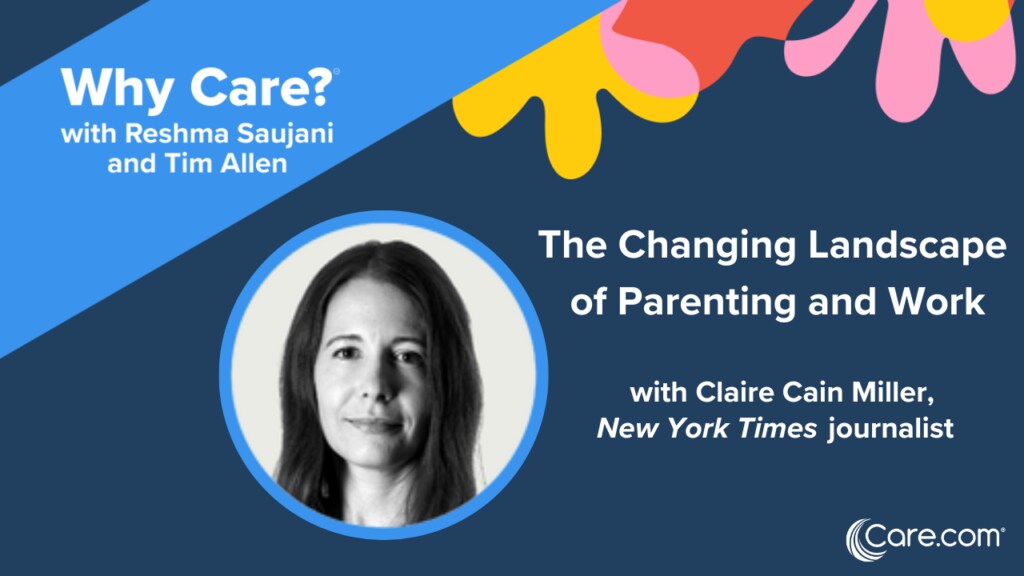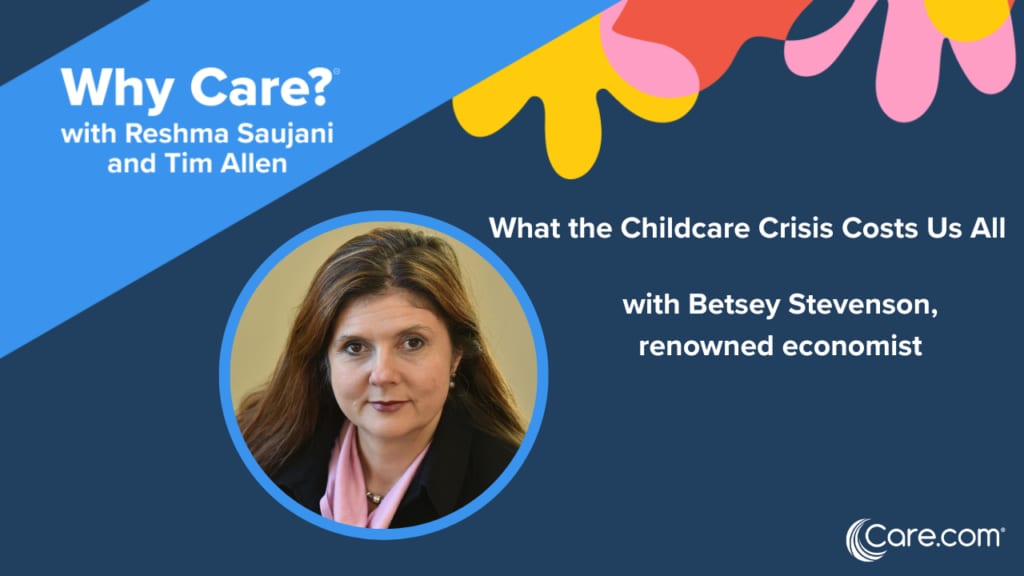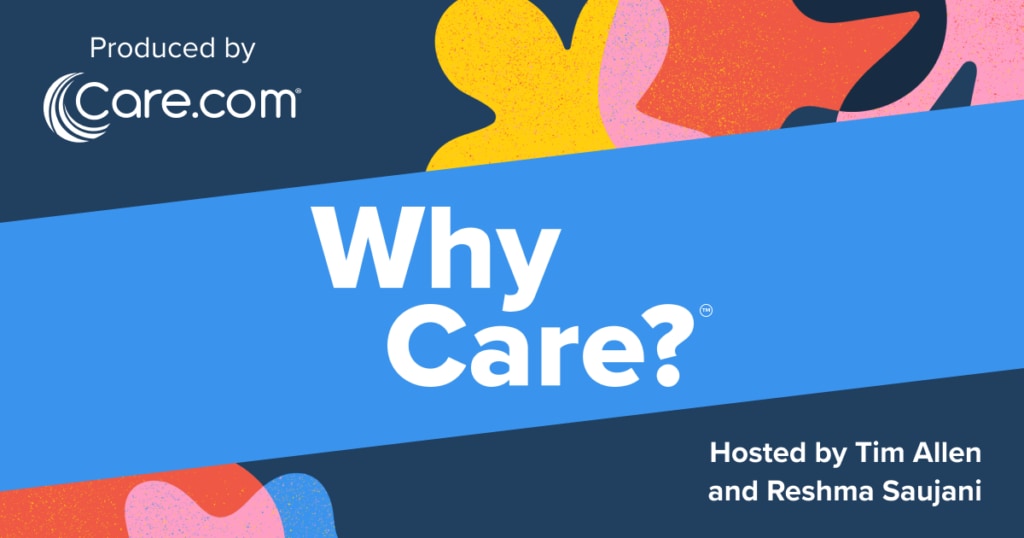Melanie Foley
Executive Vice President and Chief Talent and Enterprise Services Officer at Liberty Mutual Insurance
One thing is certain about the future of work: it’s flexible. Whether your company is planning for in-person, fully-remote, or a hybrid model, you probably have lots of questions about what it means for your career, your health, and your family. HR leaders are at the vanguard of shaping the transformation of the post-pandemic workplace. Leaders like Melanie Foley, Executive Vice President and Chief Talent and Enterprise Services Officer at Liberty Mutual Insurance. “Your company should want to put your people first,” she says. “And not just the part of the person who does tasks for you, but the whole person.” Melanie joins us to talk about what the new normal of flexibility will mean for employees and for businesses and how culture, leadership, and values will evolve in lockstep. She also shares what benefits employers plan to offer in the months ahead to support employees and their families and why embracing flexibility is key to attracting and retaining top talent.
Listen to this episode to learn:
- New benefits and policies that HR leaders are introducing, including expanded care benefits, telemedicine and virtual health care, financial planning resources, and more
- Ways that employers are de-stigmatizing employee mental health and wellness issues and offering support
- Advice for reducing employee burnout and stress (no more working lunches!)
- Why celebrating inclusivity and encompassing a broad spectrum of diversity and representation across many groups is a competitive business advantage
- How to stay connected and listen to employees to maintain a thriving culture in a virtual work environment
Full Transcript
An HR leader’s plans for the flexible future of work
Intro: Welcome to the Equal Parts Podcast, brought to you by Care For Business.
Emily Paisner: Being a working parent is hard. Whether you’re working full-time from home, starting to transition to a hybrid work model, or even heading back to the office full time, you’re probably asking yourself and your employer a lot of questions. Our guest today is an HR leader who’s no stranger to the evolution of the workplace. Melanie Foley is the Executive Vice President and Chief Talent and Enterprise Services Officer at Liberty Mutual Insurance.
She joins the podcast to talk about the future of work in a post-pandemic world. We talked about everything from the new remote work normal to supporting employee mental health, and how culture leadership and values are poised to play an even bigger role in helping employees and businesses thrive in the years ahead. Have a listen.
Melanie, thank you so much for being here. Welcome to Equal Parts.
Melanie Foley: Oh, thanks for having me.
Emily Paisner: Every year presents its own changes and challenges but over this past year, plus, it’s fair to say that change has been accelerated quite a bit. As you think about the year we all just lived and worked through, as an HR leader at a global organization, what are some of the biggest changes that you’ve seen start to take hold that you’re most excited about?
Melanie Foley: Yes, it certainly has been, hopefully, a once in a career year. The acceleration of change was greater than probably the 10 years prior to 2020. Some of the positive changes that we’re seeing is the acceleration of digital, and digital-first experience for employees. Most companies, certainly corporates had to send all of their employees home in a very rapid fashion.
Today, as we sit here, 15 months later, just think about how the way that we communicate and interact, aided by technological advancements, is really exciting because I think we’re going to be able to bring that into the new normal if you allow that phrase, and offer more flexibility to our employees than we did pre-pandemic, and make the experience even better, which I think will be a talent attractor and a talent retention tool for sure.
Emily Paisner: Many of our listeners and HR leaders are starting to make plans for going back to the office in the coming months, whether that’s full-time or hybrid and I think for some people, that’s really exciting. For others, it actually comes with a lot of anxiety. When we start to think about re-entering this post-COVID workplace, what are you most interested in and focused on?
Melanie Foley: I totally understand that from both a corporate and an employee perspective, there’s lots of trepidation about what the post-pandemic world is going to look like. Liberty Mutual has been on a journey for about eight or nine years now towards more flexibility, so the anxiety is a little lessened for us because we were already at a place where 30% of our workforce had at least a hybrid work arrangement. We expect that to increase to probably closer to 50%.
We’ll have some folks going back that are fully remote, some hybrid, and then there’ll be roles that have to go back full time, because of the nature of the work. Companies who can embrace this concept of flexibility will, again, have a better time attracting talent and keeping those that you have engaged.
We need to think through the cultural implications of this new hybrid model that we’re going into, and how to make sure that we have the appropriate team norms and work norms that will allow for people to feel included, whether you’re on the video conference, or in the conference room or in your office. There’s work to be done around connectivity and preserving what was great in your culture before the pandemic.
Emily Paisner: That is so important about how do we maintain the culture that we’ve created in an in-person environment and bring that over to remote and hybrid workplaces as well. I know Liberty Mutual has always had really generous benefits for their employees but were there benefits that you decided to add this year to support your employees even more?
Melanie Foley: Yes. Obviously, there were fundamental challenges with getting healthcare during the pandemic. There was a big shift towards virtual healthcare. Not only from a medical healthcare perspective, but a mental health perspective. We’ve seen the rise in virtual care, and an increased focus on mental health.
There’s been a focus also on financial security. We’ve provided benefits in the way of financial planning and consultation during the pandemic, and we believe that all of these things will persist. Another thing is around providing care for whether it’s parents needing to provide care for their children, their pets, or their parents. We’ve rolled out things like Care.com membership for our employees.
We rolled out an app globally called meQuilibrium, which is micro size tutorials or lessons in stress relief and resiliency. It’s these kind of offerings that we’re going to need to persist beyond the pandemic, because obviously now folks are used to it, but I don’t think these challenges of mental health, financial security, caretaking are going to lessen.
Emily Paisner: You talked about care, and I think right now, we’re having a long-overdue national conversation about our care infrastructure. Do you think companies need to assume a greater role in prioritizing care for their employees? I’d love to hear your perspective, both as an HR leader as well as a working mom.
Melanie Foley: Depending on what your employment brand is or what your values are, you should want to put your people first. It’s not just the part of the person that comes and does tasks for you, but it’s the whole person. People are multi-dimensional, they have maybe other jobs. Like I always say, I’m the head of HR at Liberty Mutual, but I’m the CEO of the Foley family and I have a lot of responsibilities in both jobs.
It behooves employers to help their employees deal with these issues of care. It will make them more productive, it will make them more engaged, it will be better for your customers and for your business. It just makes complete sense we need to be providing parental support, we need to be providing flexibility. You need to provide platforms or places in your organization where folks can come together and support one another.
Putting all of that together as an infrastructure is going to make a huge difference. We’ve seen that our employees, as we’ve listened to them throughout the pandemic, have told us that they felt cared for and that they felt heard because we listen and we assess what their needs are based on what they tell us, and then we’ve come up with solutions to address those.
Emily Paisner: That’s great. Something else that really makes me feel encouraged and is a bit of a silver lining from the pandemic is that employers like Liberty Mutual are finally starting to acknowledge and normalize mental health challenges. I’m a little bit skeptical that things like meditation and yoga apps are going to get to the root of the problems that so many of us face. From your vantage point, why is it in a company’s best interest to support their employees who are struggling with mental health issues, and do you think they’re doing enough?
Melanie Foley: Most companies have a sponsored health plan, and I can tell you that a large portion of the cost is associated with issues like depression, anxiety, and other comorbidities that result from depression and anxiety. It’s economically the right answer to take care of your employees’ mental health.
For us, it aligns to our values of putting people first. We believe in investing in our people so that we can have the best relationship with them, and then they can have the best relationship with our customers, so it makes perfect sense.
Now, whether companies are doing enough right now, that remains to be seen. I agree with you that you can’t just provide apps. I spoke about meQuilibrium earlier, I think it’s a great tool, but in and of itself, it is not going to deal with a lot of the mental health issues that we are facing today.
Really having open dialogues about mental health, our CEO has recently just sat down with the gentleman who runs an organization called One Mind at Work, and they both share their own personal stories around mental health challenges.
We’ve just launched our seventh Employee Resource Group, which is around disabilities, and we have a big focus on mental health. Our employees are just breathing a sigh of relief that we’re destigmatizing issues associated with mental health and that they have a place where they can safely talk about it and get support, and the place where they spend most of their time is at work.
Emily Paisner: Which leads to another common thing that we’ve heard a lot about this year, which is burnout. Is there anything you’re doing as an organization, culturally, to try and prevent this burnout crisis that we’re in?
Melanie Foley: Tone from the top and telling our employees, and leading by example, that you need to practice self-care. I instituted no meetings during lunch, which sounds silly, but the impact that had not only just telling folks that I was going to do it, but refusing to accept meetings during lunch hour and say, “I’d love to meet with you, and I think this is important, but I can’t bend on this. We need to find another way to do it. We can have a working tea, but we’re not having a working lunch.” Encouraging our employees, many times throughout the year, the importance of taking their time off and then modeling the behavior as leaders.
Emily Paisner: I think that’s so important because if, for example, you offer maternity or paternity leave policies and then employees see leaders coming back after two weeks, that’s not living the culture and the values and the importance of taking that time that you need. I love that you’re able to live those values and not just say them.
Melanie Foley: Exactly. That’s how we’ve been successful with our parental leave that we offered to non-birth parents, by having other leaders take advantage of these benefits and talking about them in public, we’ve had a very successful take-up rate and the full benefit that’s been offered to our non-birth mothers without that stigma associated with why does the non-birth parent have to take this time off? They go and play golf or whatever. It’s really become a norm and a very accepted one at our company.
Emily Paisner: It’s fantastic that Liberty Mutual has been named one of the best places to work for diversity. I’d love to hear, and have you share some of the commitments you’ve made to increase representation and celebrating marginalized groups at your organization?
Melanie Foley: We’ve been transparent with our demographics. We’ve set goals, both for the short term and aspirational. We’ve declared what our increase in representation of women and people of color for all levels of the organization will be by 2025. Then we have the plans in place to make sure that we achieve those goals.
That means that about one-third of our employees will be people of color and over half will be women by then. To support that, we’ve instituted lots of education, training tools, toolkits, platforms for people to have open discussions. We’ve instituted mandatory, diverse slates for all positions of a certain level of management and above.
We continue to look at all dimensions of diversity, so not just women and people of color, but veteran status, people that identify with two or more races, and the LGBTQ+ community. Then of course, most recently, folks with different abilities. Having that level of commitment, a pretty sizeable DEI office to support our businesses, I think we’re making great progress in this area that I’m very proud of.
Emily Paisner: In your experience, what are some of the best ways that HR teams and leaders can stay connected and close to your employees so that you know what they’re dealing with in their everyday lives?
Melanie Foley: We’ve really relied heavily on pulse surveys. Two new things that we’ve been doing is pulsing employees across the globe to really dig in and understand how they’re feeling, what their sentiments are, what are they afraid of? What do they need? How are they receiving the support from the company? Is it enough? Having robust data like that really demonstrates that you’re listening, and then when you turn around and link that to actions that you’re taking, I think that really forms a connection between business leaders, the company and employees.
The other thing we’re doing is some work that we call moments that matter. We surveyed all employees, really asking them, “Throughout the employee life cycle, what are the things that matter to you?” Because I think when you’re in the ivory tower or you’re in the corporate headquarters or in a top HR role, you think you know what the key moments are for employees, but then when you actually dig in and listen, you find that you’re not focusing or investing in initiatives or programs or policies that are really getting at the root of the key moments that matter in an employee’s experience with you.
That work, again, demonstrates our commitment to an exceptional employee experience and that we’re listening. It’s also going to help inform the priorities, which will then lead back to burnout to make sure that we’re only working on the things that will truly make a difference.
Emily Paisner: As we wrap up here, what does the future of employee benefits look like, and how are you seeing things shift from what was status quo a year ago?
Melanie Foley: Due to COVID and the shift in the way that we work, I think you’re going to see a heavier emphasis on physical wellbeing and making sure that free telemedicine, virtual doctor’s appointments are going to stay. That is new and benefits managers are going to need to figure out how to price that in or how to share the savings associated with those programs.
Emotional wellbeing. This is going to be, I think, the big challenge, and it’s going to last for a long time, whether it’s the continuation of working from home for some people or the burnout stress that we’ve talked about, loneliness, other difficulties, we’re going to need to make sure that we’re really doubling down on mental health solutions and just continuing the dialogue to help de-stigmatize mental health.
We talked about caregiving, giving subsidies, helping our employees find resources like activity boxes or tutoring and concierge services, and then financial wellbeing. The crisis has impacted people, especially women and people of color in a disproportionate way, and so making sure that there are financial counseling and resources available as people navigate and come out of the pandemic and figure out how to maybe reset their financial planning.
Emily Paisner: Melanie, thank you so much for everything that you’re doing to support your employees. Thank you so much for being on Equal Parts.
Melanie Foley: Oh my pleasure. Thank you for having me, Emily.
Outro: Thanks for listening to this episode of Equal Parts. See you next time.
Emily Paisner: Wait, before you go, I just want to tell you a little bit about Care For Business by Care.com. They work with some of the world’s largest companies to offer family care benefits to their employees. If you’re one of the lucky ones who already has care benefits at work, use them. If you don’t, ask for them, it’s a real lifesaver. To learn more, visit care.com/careatwork. Again, that’s care.com/careatwork.
